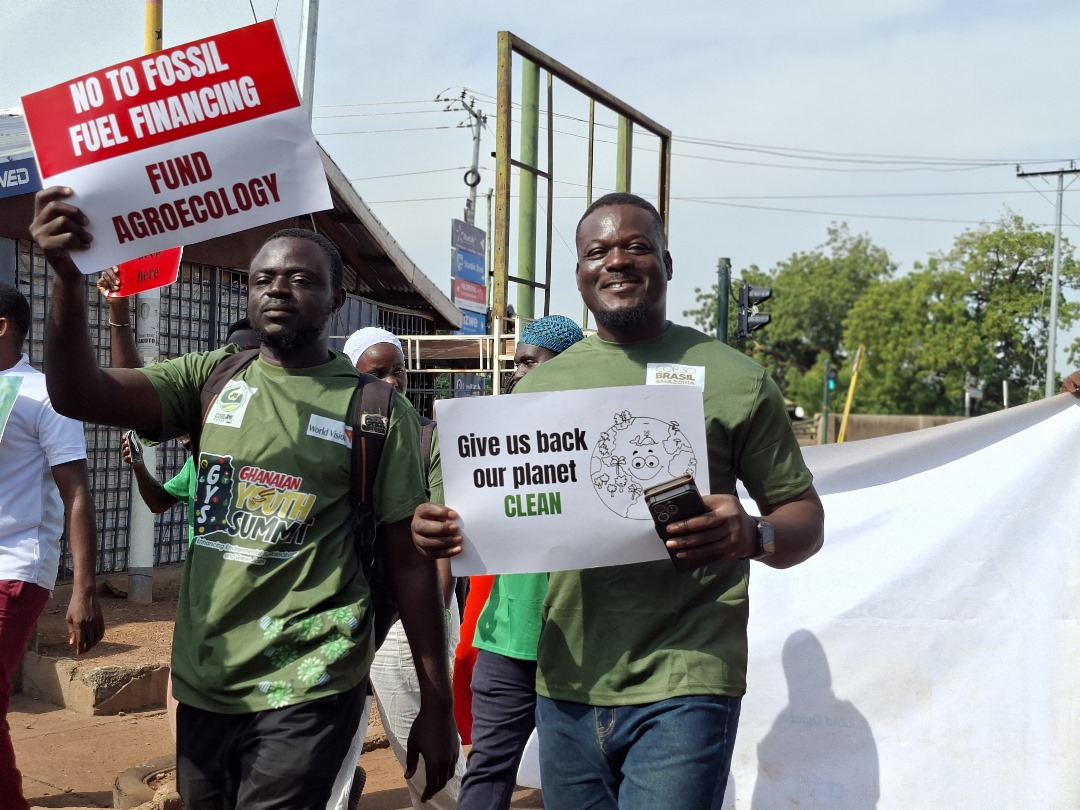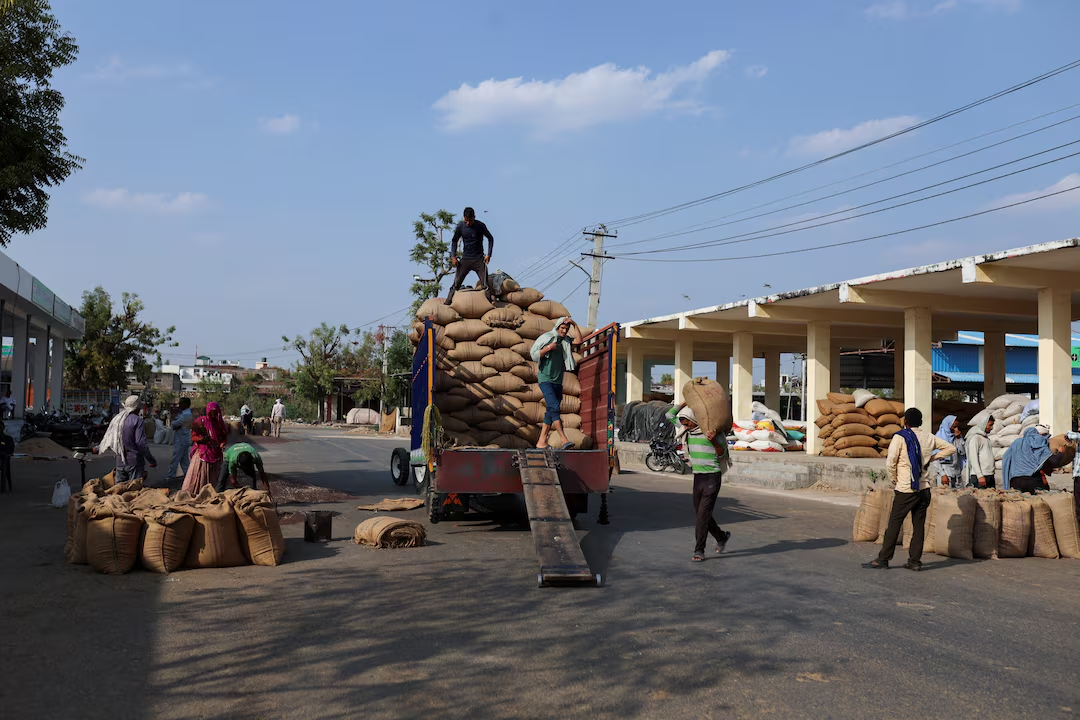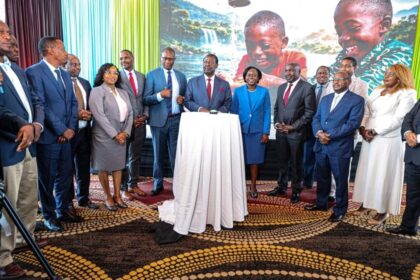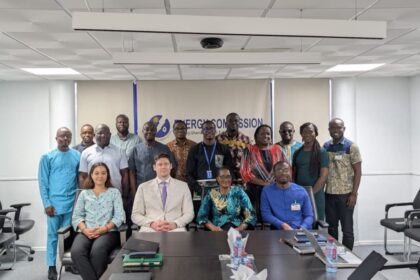African governments have been urged to advocate for the continent’s interests in global climate negotiations and ensure that international commitments on climate adaptation and financing yield tangible benefits for vulnerable communities across Africa.
This call was made in a joint declaration presented to the Northern Regional Minister by a coalition of Civil Society Organizations (CSOs), youth groups, and community movements under the banner of the African Caravans for Climate Justice.
Participants undertook a health walk through several principal streets of Tamale under the theme “Walk for Just Energy Transition Financing for Africa” before formally presenting the declaration to the Regional Minister.
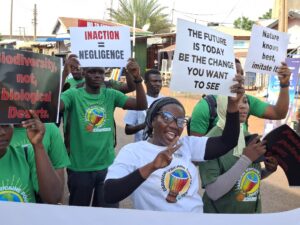
During the event, participants carried placards with messages such as “Healthy humans on a sick planet,” “When will we address the lack of rainfall?”, and “Plant diversity, harvest resilience,” among others.
The event was spearheaded by the Center for Opportunities and Rural Development (CORD Ghana) and Youth Volunteers for the Environment, along with partner organizations including the Northern Regional Chapter of ActionAid, Activista Ghana, and the Northern Alliance for Climate Action.
Other participating organizations included Rural Connect, RAINS, RICE Ghana, Allied Relief, YACES, Network of Youth for Climate Action Africa, Ummy Relief Foundation, and Tamale Hangout, with the declaration endorsed by over 1,000 CSOs and partners across the continent.
Ahead of the event, CORD Ghana and its partners organized sensitization programs for students at Sagnarigu Girls Model Primary School, Choggu Demonstration Junior High School, and Dahin Sheli Junior High School. These programs focused on Just Energy Transition and sustainable environmental conservation, aiming to deepen public awareness of climate change issues.
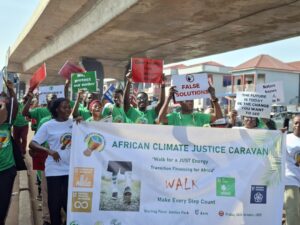
During the presentation of the declaration, Madam Esther Nyamekye Opoku, the Programmes and Policy Director at CORD Ghana, emphasized that the document represents a unified call from African communities most affected by climate change, demanding accountability and fairness in global climate financing. She urged African governments to take decisive action to tackle the climate crisis.
One of the key responsibilities of African governments, she noted, is to secure a specific target of $1.3 trillion in climate finance dedicated to sub-Saharan Africa.
This funding is crucial for supporting climate change adaptation and mitigation efforts across the region, and African governments must advocate for this financial commitment to be fulfilled.
She also called for the activation of the polluter pays principle, urging wealthy countries to pay their climate debts to raise funds for essential initiatives such as energy transitions, food system transformations, and climate adaptation.
By holding polluters accountable and mobilizing climate finance through this principle, governments can ensure that the costs of climate change are borne by those most responsible for it.
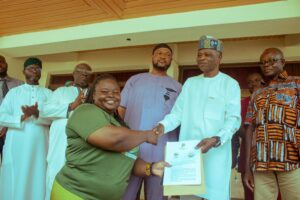
Additionally, the coalition urged African governments to provide fair, debt-free financing for loss and damage, as well as for climate adaptation and mitigation. This approach would support communities that are hardest hit by the climate crisis, allowing them to build resilience and adapt to climate impacts without the burden of excessive financial obligations.
The coalition believes that prioritizing fair and debt-free financing will help protect the most vulnerable populations and promote sustainable development. They emphasized the need for active and meaningful participation from those most affected by climate change, including indigenous peoples and internally displaced persons, in both decision-making and implementation processes.
Receiving the coalition’s petition at the forecourt of the Northern Regional Coordinating Council, Ali Adolf John Mburudiba, the Northern Regional Minister, expressed gratitude to the coalition, particularly to the youth leading the initiative.
He commended their efforts in promoting climate resilience and pledged to collaborate with Metropolitan, Municipal, and District Assemblies (MMDAs) to combat climate change in the region.
The minister recognized that climate change is a global issue that requires collective action and assured the group of the NRCC’s commitment to supporting initiatives that address this pressing concern.
Source: www.climatewatchonline.com

